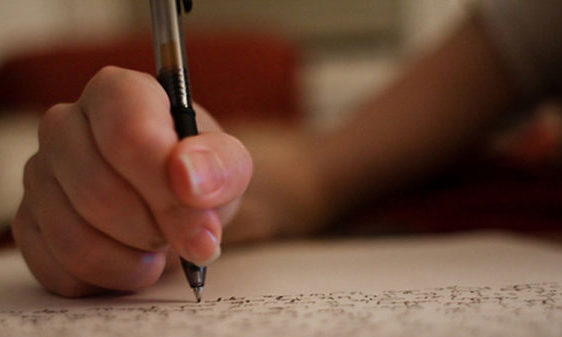‘Go with the flow’ are wise words. Nonetheless, sometimes you have a strong urge to try and stem the tide. You keep hearing statements, such as ‘The public wants it’, as the excuse for third-rate TV shows or ones like ‘students today are totally focussed on their careers — they won’t be interested in this kind of experiment’ causing anxiety in children and, finally, ‘adapt to changing times fast or we will be left behind’. Unthinkingly, we hasten to yield to the demands of the hour. But what do you do when you know that giving in is just not right? Can you go against the flow?
People are so drunk with the idea of success, companies are so focussed on profit-making, political leaders are so obsessed with winning elections and schools are so busy delivering what parents want and not what children need, that nobody realises that we are all on a roller-coaster ride to nowhere. We have no time to stop and reflect. This is why the popular poem, “Leisure”, by William Henry Davies, appears so meaningful today: “…A poor life this if, full of care, /We have no time to stand and stare.”
You can forget ‘leisure’: no such thing exists today. Our waking hours are filled with urgent tasks to be completed, important competitions to be won and dangerous foes to be beaten. Even our precious heritage is being force-fed to children through hastily compiled textbooks and commercialised festivals. The other day, I heard a proud mother announcing that her pre-school child was attending a Navratri workshop. Our children do not experience quiet times except for the monitored periods of stillness in their yoga classes. The luxury of just sitting down to reflect, even for a short while, is unheard of today.
Dwelling on the practice of reflection, I realise that reflective teaching and learning methods were at once widely adopted. Teachers were trained to reflect on the way they handled their classes and transacted their lessons. Thereafter, they addressed their own inadequacies. Students were encouraged to reflect on their learning in a systematic manner. They identified the areas which required improvement and then proceeded to work on them. A reflective approach facilitates learning from different experiences and is said to transform surface learning into deep learning.
One practice that helps to promote reflection on one’s actions, reactions, speech and true intentions is journal-writing. Although this sounds a little like Buddha’s noble eight-fold path, keeping a journal will not necessarily make a person spiritual. But if children are encouraged to write about what they have said and how they have behaved, they learn to understand the significance and consequences of their speech and actions. Apart from thinking about (and hopefully improving) their behaviour, children learn to process everything that they read, learn, see and hear as a matter of habit. Such habitual reflection develops critical thinking and analytical skills and these, in turn, have a positive impact on general behaviour. Pedagogical strategies come and go like fashion trends, but a consistently reflective approach brings clarity to thoughts and concepts of both teachers and learners.
I am certain to be regarded as demented or senile ifI proposed journal-writing as an activity for students. ‘Where on earth is the time to indulge in such things!’, people will exclaim. Barely have they learned to walk and talk, and they are being readied for brilliant careers. They are sent to music and dance classes, chess, swimming and cricket coaching sessions. Older students attend tutorials for their school tests as well as for PSAT, SAT, CLAT and board exams. Many participate in the profusion of Olympiads. Incidentally, candidates for the Joint Entrance Examinations do not sleep — they catch a few winks in ‘unimportant’ classes in school. Last week, an enterprising physics teacher was showing her students the changing shape of their own shadows with the help of lights. On questioning them, I discovered to my dismay, that not a single child had observed this phenomenon on her own. Alas, we truly have no time to stand and stare. I wish we had magical powers to stem the tide.
(Devi Kar is director, Modern High School for Girls, Calcutta)










